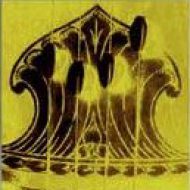WEBINAR – THE AESTHETICS OF VARNAM IN KARNATIC MUSIC Sat, 30 July | 2 pm – 3.30 pm (BST) / 6.30pm (IST) | £10 STELLA SUBBIAH (Artist Development Lead, Bhavan London) In conversation with LUDWIG PESCH (Author of The Oxford Illustrated Companion to South Indian Classical Music) VIGNESH ISHWAR (Musician) Today, as in the remote …
Category archives: Links
Subbulakshmi and contemporary feminism: Sunil Khilnani on BBC Radio 4 Incarnations: India in 50 Lives
Listen to this programme on BBC Radio 4 (15 minutes) >>Find song lyrics, translations and more (type “M.S. Subbulakshmi”) >> M.S. SubbulakshmiBorn 16 September 1916. Died 11 December 2004Madurai Shanmukhavadivu Subbulakshmi (Tamil: மதுரை சண்முகவடிவு சுப்புலட்சுமி, Madurai Shanmukhavadivu Subbulakshmi ? 16 September 1916 – 11 December 2004), also known as M.S., was a Carnatic vocalist. She was the first musician ever …
A lesson (thought experiment) inspired by Gandhi’s understanding of music
Mahatma Gandhi stamp set | Mahatma Gandhi and music >> The challenge of going beyond a “narrow understanding of classical” music has long been debated among performers and musicologists; whether for the sake of creativity and self-expression or ideals like “serving society through music”, even harnessing the healing power of music where most needed. So what about …
Continue reading “A lesson (thought experiment) inspired by Gandhi’s understanding of music”
Mahatma Gandhi on “music of mind, of the senses and of the heart”
Very few people know that Gandhi was extremely fond of Music and arts. Most of us have been all along under the impression that he was against all arts such as music. In fact, he was a great lover of music, though his philosophy of music was different. In his own words ‘Music does not …
Continue reading “Mahatma Gandhi on “music of mind, of the senses and of the heart””
Audio | Vidya Shankar on teaching Carnatic music to children
Learn more >>
